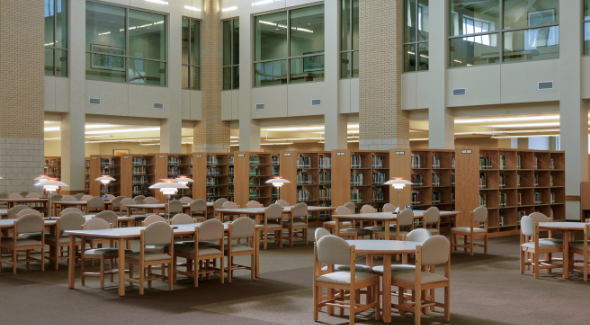While running errands this week, I caught a portion of a podcast - On Being.The featured guest was poet Gregory Orr, and between stops at the grocery store and Home Depot, I heard him read a poem that resonated with me.
This particular stanza from Orr’s poem "Let’s Remake the World with Words" got my attention.
Let’s,
As Wordsworth said, remove
“The dust of custom” so things
Shine again, each object arrayed
In its robe of original light.
How can we remove ‘the dust of custom,’ in our working lives? How can we improve our services and resources so that the purpose for which they were originally created is again clear or improved? We have to do some housekeeping.
Higher ed is really good at doing things the way we’ve always done them. Why? Well, sometimes we know the answer to that question, and sometimes when that question is posed, it hangs in the air, and we can’t come up with the answer.
That’s how we’ve always done it.
That’s how we typically do it.
That’s how I was taught to do it.
We are all guilty of uttering these phrases, of getting so accustomed to the way things are done that we forget to stretch, to look at things from a new perspective. We become complacent.
A look at the website of many colleges will tell you just that. Instead of leading, engaging, and connecting with potential students, college sites often look like dumping grounds for every bit of information we’ve ever known. And, somewhere in the middle of all that text, the message gets lost.
Granted, some of the noise is impossible to remove. It’s the institutional-speak we must include. The policies and procedures are uninteresting and dry, but essential nonetheless.
But the vast majority of content on a typical college website can be tweaked. Thinning content, updating information, and checking for ADA compliance is not a fun job. It’s arduous, tedious work. Still, it’s so important to constantly improve what is likely the first impression a potential student may have of your school.
Every college has room to dust off their customary processes and resources. The key is to have it reviewed with fresh eyes.
When undergoing a website overhaul, we suggest asking the really important stakeholders: potential students. Have them apply, find information about financial aid, or look for program information. Soon, you’ll know what information is unclear or clunky. Also, ask other departments what questions they hear from students most often. This can be the starting point for a task-driven, engaging site.
This approach can also be used to improve any number of other processes, resources or collateral pieces.
I tried this at a college I worked at years ago. I asked all the front-line staff to tell me the most common question they received from students. What I soon learned was that there were no restroom signs in one of our buildings. I had worked in and around that facility for years, and hadn’t noticed myself.
We challenge our clients to take a fresh look at their processes. Identify and listen to stakeholders, let them weigh in, and then take what you hear and apply it to your purpose. Some ideas will be useless, but some ideas might just spark an idea that will help you breathe new life into a process or resource that has been neglected for years, covered in dust.




